 [The first edition of this book was initially reviewed in my 'Optimum Performance Technologies' weblog on October 10, 2008.]
[The first edition of this book was initially reviewed in my 'Optimum Performance Technologies' weblog on October 10, 2008.]My first intellectual encounter with the 'habits of minds' - or critical attributes of effective & creative thinkers & problem solvers - came about when I became a member of ASCD during the late eighties.
The membership gave me ready access to their wonderful subscription magazine, 'Educational Leadership', as well as a host of other valuable resources, including two publications, 'Developing Minds: Program for Teaching Thinking' (Book I) & 'Developing Minds: A Resource Book for Teaching Thinking' (Book II), edited by scholar-educator Dr Arthur Costa.
From my personal perspective, the two books have the best collection of "thinking stuff", with a principal focus on developing student's mastery of thinking skills.
The original 'habits of mind' - or "intelligent behaviours" as the author prefers to describe them - was featured in one of the book chapters, which was later expanded & eventually evolved into four separate publications (totalling over 500 pages), which I have also acquired & read a few years ago:
Book 1: 'Discovering & Exploring Habits of Mind';
Book 2: 'Activating & Engaging Habits of Mind';
Book 3: 'Assessing & Reporting on Habits of Mind';
Book 4: 'Integrating & Sustaining Habits of Mind';
For the benefit of readers, I like to recap the "habits of mind" (they are work in progress as more may be added, according to the author) as follows:
1) Persisting
2) Managing impulsivity
3) Listening with understanding & empathy
4) Thinking flexibly;
5) Thinking about thinking (meta-cognition);
6) Striving for accuracy;
7) Questioning & posing problems;
8) Applying past knowledge to new situations;
9) Thinking & communicating with clarity & precision;
10) Gathering data through all senses;
11) Creating, imagining, innovating;
12) Responding with wonderment & awe;
13) Taking responsible risks;
14) Finding humor;
15) Thinking interdependently;
16) Remaining open to continuous learning;
What I have in my hands right now, after perusal, is a 200-page book entitled 'The Habits of S.U.C.C.E.S.S: Nurturing Intelligent people @School @Home @Work', by a Singaporean author, Henry Toi.
In a nut shell, this locally published book is a seemingly reorganised condensation of the original 16 "habits of mind" into 7 strands forming the apt acronym, S.U.C.C.E.S.S, apparently taking a cue from psychologist George Miller's 'M-Space' variable.
The S.U.C.C.E.S.S acronym stands for:
1) Suppleness (incorporating thinking flexibly; creating, imagining & innovating; & remaining open to continuous learning);
2) Understanding (incorporating listening with understanding & empathy; responding with wonderment & awe; & gathering data through all senses);
3) Constructiveness (incorporating questioning & posing problems; applying past knowledge to new situations; & thinking interdependently);
4) Courageous Thinking (incorporating persisting; & taking responsible risks);
5) Exactness (incorporating striving for accuracy; thinking & communication with clarity & precision);
6) Self-management (incorporating thinking about thinking or meta-cognition; & managing impulsivity);
7) Silliness (incorporating finding humour);
From the intellectual standpoint, I regret to say that the author has not added any new insights to the skills repertoire as originally envisaged by Dr Arthur Costa.
What the author has done, remarkably to some extent, is the inclusion of many jokes to enliven his S.U.C.C.E.S.S model, as well as several colourful visual maps to capture key points of relevant chapters.
Additionally, the author has also introduced many interesting ideas for cultivating his S.U.C.C.E.S.S model.
My only adverse comments of the book are as follows:
- the overwhelming quantity of jokes as illustrations of essential attributes seems to be an overkill. Jokes are OK, when you share them in a classroom, as part of a fun learning ambience, but a line must be drawn when you are writing a book of this genre;
- I would have preferred real-world/real-life examples as illustrations of essential attributes instead of too many silly jokes; to be frank, the silly jokes seem to trivialise the intellectual integrity, although I can well understand the author's intent in living up to the concept of "silliness" as set forth in his S.U.C.C.E.S.S model;
- The visual maps at the end of chapters are rather rudimentary, & actually, from my point of view, they serve no useful purpose other than static captures of key points; it would have been more worthwhile, even brilliant, if only the author had used them as spring-boards to guide the reader into thinking 'what's next for me?' or 'where do I go from here?', taking a straight cue from "habit of mind" #7; in fact, Dr Arthur Costa has rightly said: "a critical attribute of intelligent behaviour is not only having information, but also knowing how to act on it!";
In fairness to the author, I want to say this: Henry Toi's book is quite fun to read, partly because of his light-hearted approach.
Naturally, his silly jokes help to enliven & probably expedite the metaphorical connections to the many points he wants to to drive home in his book.
My concluding remark is thus, if you have not read any of Dr Arthur Costa's books, particularly in connection with the "habits of mind", then this book is still reasonably good & easy to read, notwithstanding my adverse comments.
[Henry Toi is the Executive Director of the Art Costa Centre for Thinking in Singapore. Readers can visit his corporate website at http://www.artcostacentre.com/.]
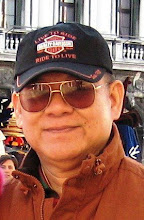


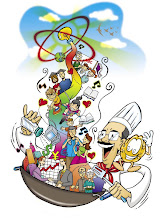
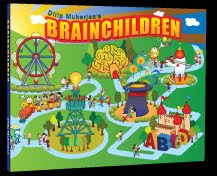



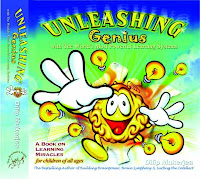
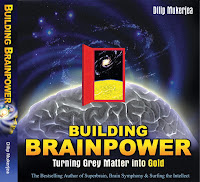
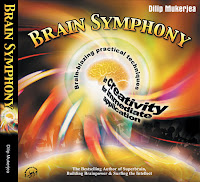





No comments:
Post a Comment